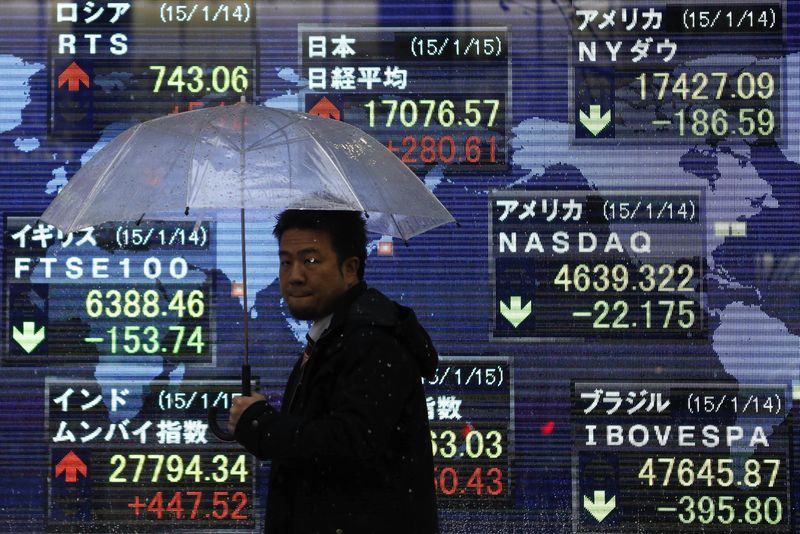This post was originally published on this site
https://i-invdn-com.akamaized.net/news/LYNXMPEB0I07L_M.jpg
Investing.com – Asia Pacific stocks were mostly down Tuesday morning, giving up some earlier gains even as a recent bond markets selloff subsided and calmed investor nerves.
Hong Kong’s Hang Seng Index slid 1.08% by 10:23 PM ET (3:23 AM GMT), with the Hang Seng Indexes Co. unveiling sweeping changes to the gauge on Monday. The changes include increasing the number of constituents from 52, limiting a stock’s weighting to 8% and shortening the listing history requirement for a company to be included. Implementation of the changes are targeted to begin in the May index review and could last through mid-2022.
China’s Shanghai Composite fell 1.05% and the Shenzhen Component inched down 0.08%. The country’s National People’s Congress opens on Friday, where Premier Li Keqiang will deliver a 2021 work report that will reportedly not include an explicit economic growth target for a second consecutive year.
In Australia, the ASX 200 edged up 0.19%, with the Reserve Bank of Australia handing down its interest rate decision later in the day.
Japan’s Nikkei 225 was down 0.71%. South Korea’s KOSPI jumped 1.46%, with South Korean markets returning after a holiday.
Investors turned back towards risk assets, following a recent selloff driven by worries that massive stimulus packages and progress in the battle against COVID-19 have increased the risk of some areas of the economy overheating.
They will now gauge U.S. Federal Reserve officials’ reactions to the recent turmoil, with Fed Chairman Jerome Powell due to speak at a Wall Street Journal event on Thursday where he is expected to discuss the economy.
“There’s nothing wrong with longer term interest rates where they are; financial conditions broadly are still fairly easy … given the stabilization we’ve seen since Thursday, the Fed can breathe a sigh of relief,” MacroPolicy Perspectives LLC founder Julia Coronado told Bloomberg.
On the stimulus front, Senate Majority Leader Chuck Schumer said that the chamber will begin debate on a $1.9 trillion stimulus package proposed by President Joe Biden earlier in the year and passed by the House of Representatives earlier in the week.
The U.S. is also scheduled to release economic data throughout the week, starting with the Fed’s Beige Book on Wednesday and followed by data on factory orders, initial jobless claims and durable goods orders on Thursday. February’s employment report, including non-farm payrolls and the unemployment rate, will also provide an update on the U.S.’ labor market recovery from COVID-19.
Meanwhile, the World Health Organization on Monday warned that the number of global cases rose for the first time in almost two months during the past week.

